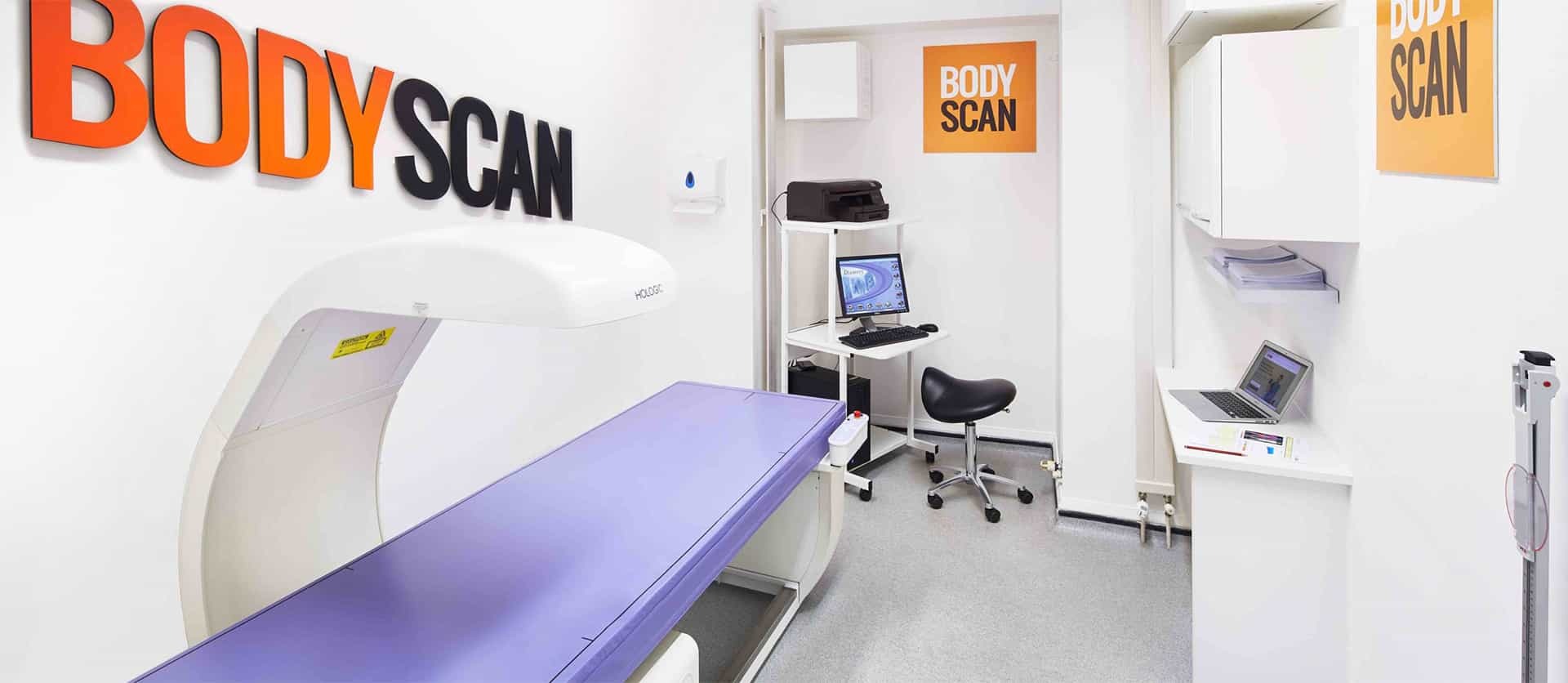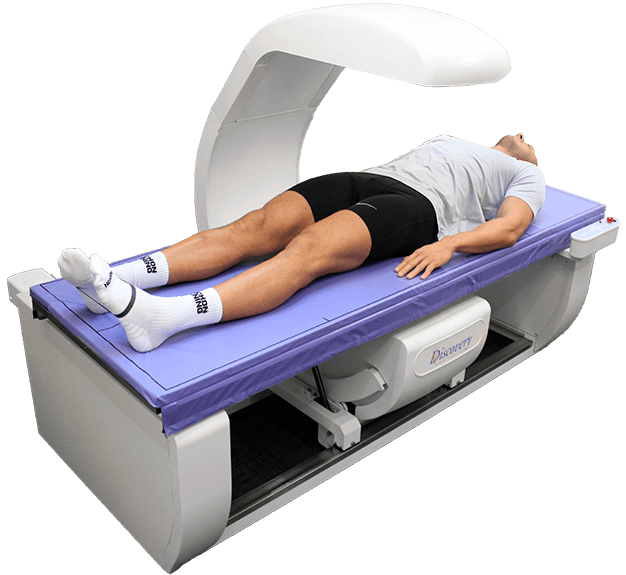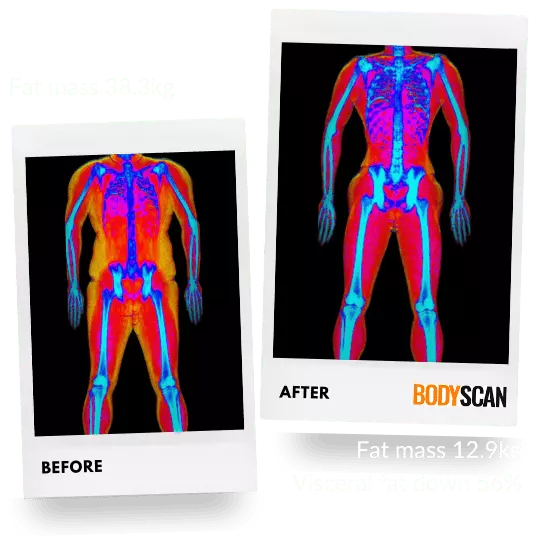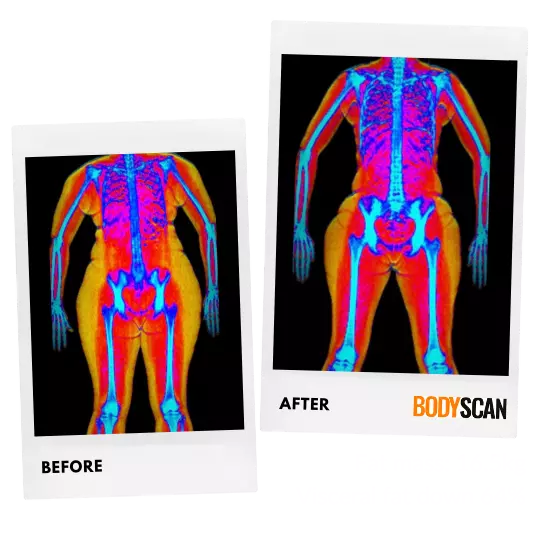Dexa Body Scans
Lose Fat
Build Muscle
Stay
Healthy
Your first step to better health in just 4 minutes












Start your journey with us
We are the experts in body composition, so whatever your health and fitness goals we'll help you get there!
Fat Loss
The Baseline DEXA scan consultation tells you how much fat you have now, how much you need to lose, the calories you should consume every day and how long it will take to get there.
Visceral Fat
'Bad' fat around your organs increases your risk of diabetes and other diseases. The DEXA scan assesses your risk and how much fat you need to shift for a longer, healthier life.
Muscle Gain
Building muscle is a very slow process and you probably have less than you think. DEXA will precisely measure your lean body mass and we will advise what you need to do to gain muscle.

The most advanced DEXA body composition reports available
London's only DEXA facilities equipped with BodyCompPro software, delivering the most precise, detailed, and comprehensive reports in the industry—giving you unparalleled insights into your health, fitness, and progress.
See sample reportWith thousands of 5-star reviews and over 35,000 DEXA scans conducted using the most advanced body composition software in the industry, we deliver unrivalled results to help you achieve your fat loss or muscle gain goals.
See for yourselfJoin thousands of Bodyscan customers losing fat and getting fitter!
Just five months after his first visit to BodyScan, Jinal, 38, had lost over 25kg of body fat and more than halved his visceral fat.
"I knew I was not in a good place but didn't know what that actually meant or how I compared to other men my age."
"BodyScan gave me the kick-start I needed - an accurate, non-judgmental assessment, information and advice to start turning things around, and hard data to keep me on track."
Jinal, 38
Join thousands of Bodyscan customers losing fat and getting fitter!
In exactly one year, BodyScan customer Idelkys, 40, halved her body fat from 32.7kg to just 16.5kg and reduced her visceral fat by 64%.
"The BodyScan consultation was a really positive experience. It was great to have a visual on my body composition, which gave me the motivation to make a change."
"BodyScan gave great advice regarding calorie intake and a realistic timeline, which helped massively with my biggest challenges of eating healthily and taking things at a steady pace."
Idelkys, 40
Join thousands of Bodyscan customers losing fat and getting fitter!
Six months after his first body scan, Nathan, 33, had achieved true body recomposition - fat loss of 3kg and muscle gain of 1.5kg. He went on to gain 10kg of muscle mass.
"Paired with eating more cleanly and adhering to a regular exercise regime, the scans allowed me to check that my weight-loss was mostly fat and helped me set the right calorie intake to maintain enough energy to fuel my training."
Nathan, 33
It's our unmatched experience and expertise delivered in plain English that makes the BodyScan experience so valuable.
Our DEXA calculator reveals calorie requirements for fat loss. We recommend checking in every 3 months or so.
Try our calculator
The BodyScan guides to Fat Loss & Muscle Gain!

Start your journey now with our FREE guides.
"We are really adamant that our patients get DEXA scans at least once a year. I think this is a very important thing to be doing."
Dr Peter Attia, author Outlive: The Science and Art of Longevity

Our DEXA scans give all the indices advised in Outlive
What is included?
In your 40 minute appointment you will get an in-depth, personalised face-to-face consultation with a clear breakdown of your Fat Mass Index (FMI), Lean Mass Index (LMI) and Appendicular Lean Mass Index (ALMI).
Reviews
In more than 1,950 genuine Google reviews customers consistently say the BodyScan experience exceeds their expectations.
I’ve
James Doyle
Really welcoming and put me at ease straight away. Fascinating information that was presented clearly, Jenna answered all my questions happily. I’d definitely recommend!
Sandra Knowles
Excellent experience at BodyView today. The report is incredibly insightful - unlike anything else I've had before. Fascinating insights into my body composition, all beautifully and clearly presented. It was also very prompt and professional. Great 1-1 walk-through of my results by Jenna just moments after the scan, which itself only took a few minutes. Already looking forward to my next scan and seeing the comparison.
Constantine Louloudis
Amazing service
Toyin Omotoriogun
Professional and detailed scanning services. Great to get DEXA scan snd body comp. Have the information I needed now
Sarah Antoni
Ashley was damn amazing! I was HIGHLY skeptical coming into the Dexa scan. And Ashley blew away my expectations with his initiative insights and helpful advice. I highly recommend requesting him for your future scans.
Benjamin Hero

Frequently asked questions
A DEXA body scan uses a very low dose of X-rays (dual-energy X-ray absorptiometry) to provide an accurate and precise measurement of your body composition. It is a medical-grade technology that was initially developed to measure bone density and is now universally regarded as the gold standard for measuring body composition (body fat, lean mass and bone).
Read more detail hereThe scan is quick and easy with no intervention and there is no claustrophobia. You lie on a padded mattress for just four minutes while the scanning arm makes three passes over your body. The scanning arm remains about 30cm from your body and the bed is completely open - there is no confined 'doughnut' or chamber that you go into as there is with a CT scanner or MRI scanner.
Yes, absolutely. Dr Attia is interested in Visceral Fat (VAT, visceral adipose tissue), Lean Mass Index (LMI), Appendicular Lean Mass Index (ALMI) and Bone Density (BMD, bone mineral density). Interestingly, Dr Attia says that body fat percentage is the “least interesting” number from a DEXA scan. Note that BMD is an indication, assessed as an average across the whole body.
A DEXA scan will reveal your body composition in great detail, showing fat and muscle mass and their distribution, as well as a good indication (a 'scan lite') of your bone density. You'll get a printed and a digital copy that will be available on your customer portal, we'll also go through it with you in great detail.
Our consultants will run through your report with you in detail, and there will be plenty of time to answer any questions that you might have. We also use BodyCompPro the leading DEXA Scanner body composition software so you will find your report filled with rich and easy to understand information along with comparables based on the largest dataset in the UK.
DEXA has two uses and modalities, to measure bone mineral density (BMD) and body composition (fat and lean mass). The latter will provide a good indication of your bone density but it is not a definitive, diagnosable result. If you are primarily concerned about your bone density then you should book an Osteoporosis scan with us.
DEXA is the gold standard for measuring body fat but every measurement method is essentially a prediction of what we would find if we performed an autopsy. Every method will give you a different result because they all ultimately use a different algorithm into which are fed measured data points. While DEXA is considered very accurate, perhaps even more important than accuracy is consistency. Consistency means that even very small changes in body fat will be faithfully recorded. Conversely, it means that recorded changes are real. Because of the volatility and variance of other methods, actual changes may not be picked up and recorded movements in body fat may not have actually occurred.
If you're wondering 'how much is a DEXA fat scan in the UK?', BodyScan offers very competitive UK pricing for DEXA body scans. The first scan is £189.00 for one person or just £340 for two people, and follow up scans are just £139 each. And remember our scans use gold standard hardware and software unlike some other providers.
Yes, they are very safe indeed. The risk from the radiation is defined as “negligible” by the government and is equivalent to eating 50g of Brazil nuts. Yes, really!
BodyScan has two London clinics - in Marylebone (nearest tubes Baker Street and Regent's Park) and the City of London (nearest tubes Bank and Monument). And our parent company BodyView also has other locations, go to the locations page to find out where is most convenient for you.
DEXA's strength is its consistency in measuring body fat. DEXA is not subject to human error as is the case with skinfold calipers, nor does hydration affect the result, as it does with bio-impedance scales. Most people who use calipers are not qualified to use them and pinching just a centimetre away from the required spot will throw the result way off. Bio-impedance devices work by measuring resistance to a small electrical current, when is then extrapolated to estimate body water and then again to estimate fat.
As with food, we advise minimal exercise before your scan, again to set a standard set of conditions as well as ensure that muscles are not unduly pumped and that you are not breathing heavily when you are on the scanner bed. We want you to be as still as possible.
We recommend that you do not eat, or eat light, for four hours before your scan. This is to ensure you do not have a big meal passing through your system - we want to measure you rather than what you eat! However, you will always have food in your gut - the reason for the 4-hour fast is to set a standard that helps ensure a consistent physiological state each time you have a DEXA scan.
The minimum time between scans is eight weeks but unless you are on an ambitious fat-loss programme we recommend every 12 weeks - long enough for something to have changed and also long enough for you to be confident that your nutrition and exercise regimen is sustainable and that you can keep it up. We usually recommend a weight change of about 3kg before a re-scan.
Please wear comfortable clothing without metal in. No zippers, poppers, or underwired bras please as metal will show up on the scan and can interfere with the results. Something like leggings or tracksuit bottoms or shorts with a top is ideal.









